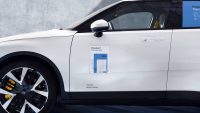Electric car start-up firm Faraday Future has serious doubts about being able to carry on – and doesn’t know when it’ll be able to deliver the first of its FF 91 electric vehicles.
It was supposed to begin delivering the luxury EV during the final three months of this year, but according to Reuters, the NASDAQ-listed firm says it needs more money to keep going and increase production.
The company was established in 2014 but its stock has plummeted by some 94 per cent this year – today it stood at 34 cents (29p) a share.
As of last Thursday (Nov 17), it had 369 orders on its books – 30 fewer than the non-binding and refundable paid deposits that it had as of the end of June.
The news comes four years after co-founder Nick Sampson quit, predicting that the firm would never make a profit.
Faraday Future says it had $31.76m (circa £26.78m) in cash as of the end of the third quarter, which was down on the $121m (£102m) it had at the end of the second quarter.
Its loss for the third quarter was down from $303.9m (£256.1m) last year to $103.4m (£87.14m), but according to Reuters, it now has ‘substantial doubt’ about its future as a going concern.
Like others, it has been faced with rising costs – such as for lithium – because of the war in Ukraine, as well as disruptions to the supply chain, which have delayed deliveries of the FF 91, pictured at top.
Faraday Future was also sued earlier this year by one of its investors, who wanted two board members removed.
It’s not the only EV start-up having problems. In the summer, UK firm Arrival put its electric car and bus projects on hold and said it would axe 800 jobs because of spiralling costs.
Arrival now reckons it won’t have enough money to last until the end of 2023, said Reuters.


































